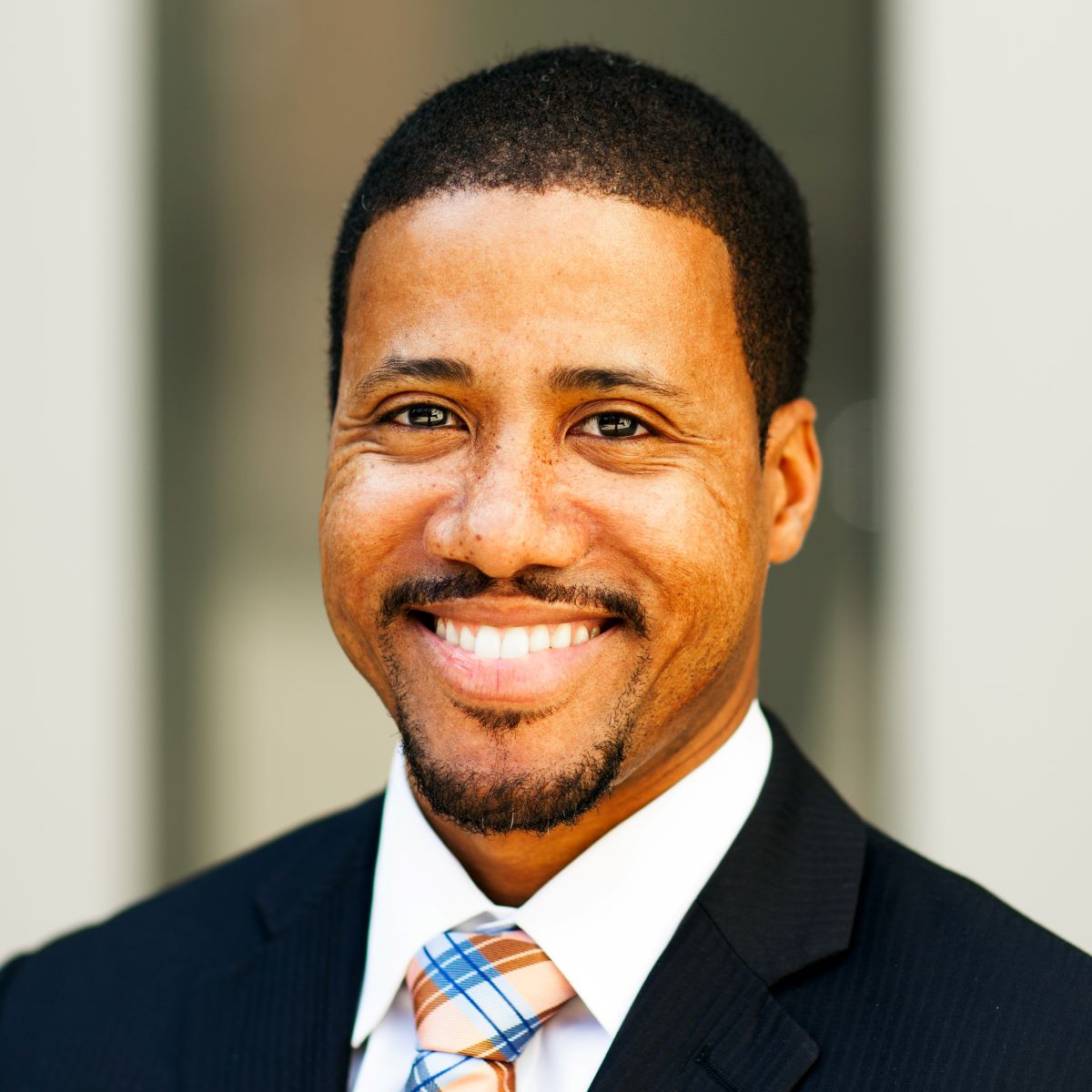Lumas Joseph Helaire, PhD (he/him) joined the Harvard T.H. Chan School of Public Health in July 2021 as the assistant dean for population health management and health equity education where he assists the Dean’s Office in the identification, development, and promotion of health equity collaborative initiatives within and beyond the University. He is also a visiting lecturer at the Department of Social and Behavioral Sciences. At the University of Michigan (U-M), Helaire previously served as the senior associate director at the Office of Academic and Multicultural Initiatives and was the DEI lead for the Office of Diversity Equity and Inclusion. He received a PhD in education and psychology and a MS in development psychology at U-M.
At Harvard Chan, you are currently developing an educational program in population health management and health equity education. What benefits do you hope to bring to the School through the creation of this new program?
The pandemic has heightened the awareness of the role of public health in the safety of the population and security of our economic, political, and educational systems. The School was flooded with requests to help businesses, schools, churches, and others to understand how best to respond in this moment and moving forward. The world adapting new ways of living and working is still happening. New careers will continue to evolve that will ask, “what role do public health principles and practices have in shaping this position for long-term success?” This program is part of keeping Harvard Chan in the position to meet the needs of the public in understanding and adopting a public health lens. There are many questions to be answered before we can bring a new program online, but this new program is aimed at harnessing the new appreciation of public health as an all-relevant field.
Accordingly, the creation of a new program may bring in a new segment of the population, or a familiar segment at a different stage of their career. That means we will bring into the School a new set of experiences, skills, and knowledge. This will press us to stretch our frameworks of theory and practice.
Launched by you and an interdisciplinary team at Harvard, the HealthLab Accelerator will fund ventures by Harvard students and postdoctoral fellows that aim to solve a global health problem. What excites you the most about this entrepreneurship program?
I have to say I’m most excited about one day coming across some world changing device, app, program, or tool that was once pitched at Harvard Health Lab (H2L). It feels me with a special type of energy to know that someone put faith in themselves and a team and engaged process to make their dream a reality.
I just enjoy seeing someone in their place of happiness or purpose. At the pitch-to-match event we held earlier this month you could see passion dancing in the eyes of the presenters. It is like they were squarely in a moment of flow. The ideas were awe-inspiring, and students were impressed with one another’s pitches.
Every day we all encounter problems and issues that need solving and we all have probably thought of some way to address those problems. But not always do we take the time to form that thought it into a concrete idea. These students have invested deep thought and courage into sharing that idea and connecting it to others to form teams. The energy and confidence coming from them is palpable. That type of energy is transformative and healing.
Almost all innovation is about enhancing the quality of life; creating ease. Public health uses the strategies of preventing disease, and promoting health to not only prolong life, but to prolong the quality of health in life. I’m truly looking forward to what comes of an accelerator that puts public health at its core.
Do you have any advice to students who have an interest in building new initiatives to improve public or planetary health?
My advice is simple, enter the entrepreneurial ecosystem that is here at Harvard NOW. There’s Harvard Health Lab, iLab, The Grid, to name a few. Innovation happens in congregation. Engaging the community will deepen your commitment, enrich your ideas, inspire new ones, and increase your knowledge of how to go from dream to plan to execution and reality. Do not wait until your idea or plan is perfect. Community is necessary for it to grow. When we hold our baby [idea/dream] too close to our chest, we crush it. If you have something to offer the world, incubate it here among peers, mentors, and funders, all invested in a culture of supporting entrepreneurs and creativity.
If you are not the one with the idea or vision, then you are just as critical to this ecosystem. Entrepreneurship is not just about the idea; it is also about the engine that makes the idea go. That engine is the team of people who like to build, ask critical questions, draw, design, focus on communicating the idea to others, find or donate funds.
My advice is simple because the creators of these accelerators are doing the amazing work of bringing together donors, mentors, and experts to help equip students. Yes, you will have to work hard; new initiatives demand it. But you will have the support to meet that demand.
Connect with Lumas Joseph Helaire on LinkedIn.




